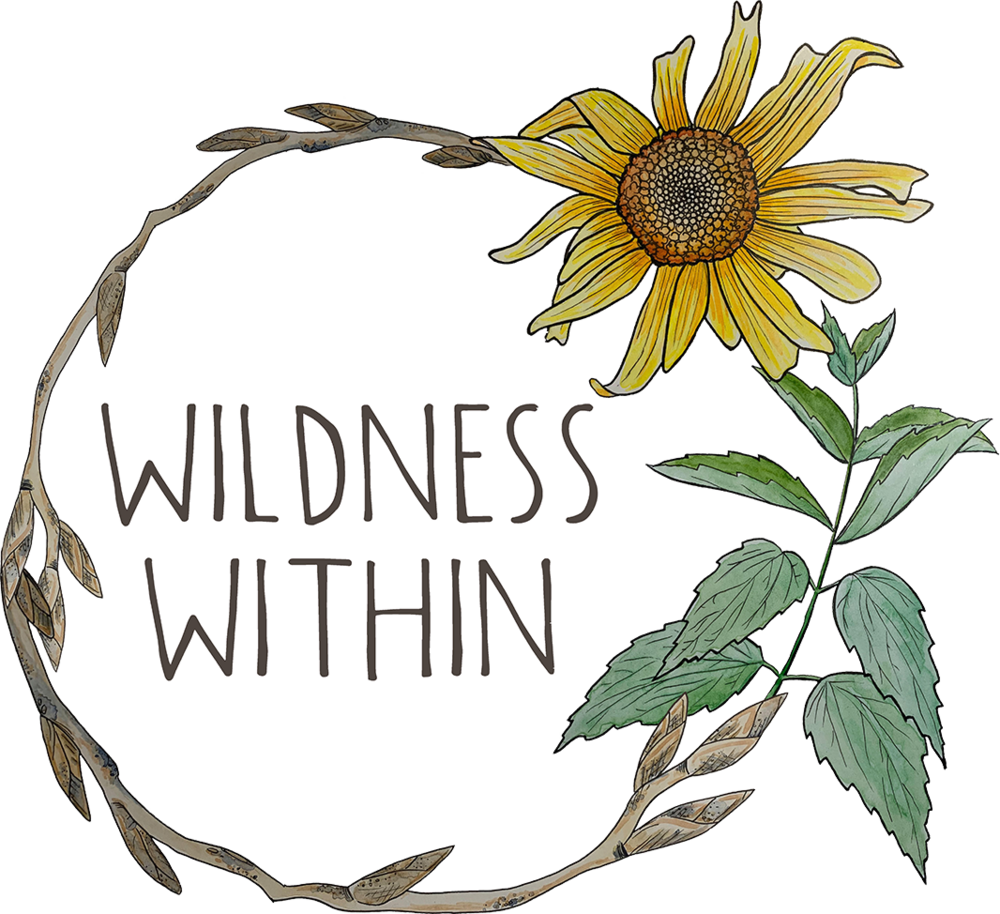The Stinging Spinster
Common Names: Stinging Nettle, Stinging Spinster, Wild Spinach, Devil’s Leaf
Botanical Name: Urtica dioica
Plant Family: Urticaceae
Parts Used: Whole plant; leaves, stem, seeds and roots (at appropriate harvesting times)
Actions: Calcium, Iron, protein, potassium, formic acid, acetylcholine, sulfur, beta-carotene, vitamin K, vitamin D & C, flavonoids
Identification: Square, grooved stem with opposite leaves. Nettle leaves are a dark green, are “heart-shaped” (or lanceolate) and have regular serrations along the edges. The infamous “stinging” hairs are found on the under side of the leaf, which is a lighter green color. The hairs are also along the stalk. Interestingly, the hollow hairs have the anti-histamine acids, yet the juice inside of the plant is alkaloid. Some say just rub nettle juice on your sting to help reduce the pain and inflammation.
Habitat: Nettle forms extensive stands and is found most commonly in fields or moist, open areas.
Harvest: The whole plant is best harvested when it is below knee level and has yet to put out any flowers or seeds. The best time is during the spring.
The invisible stinging hairs...
Where do I begin to discuss the lovely stinging spinster…? Perhaps, I can address the importance of nettle as a fiber for manufacturing cloth (comparable to cotton and linen) and also fiber for rope, nets, etc. Or I can start with talking about the plant as a wonderful food source. The wild spinach dating back to the ancient Greeks and Romans who would cultivate this stinging, nutritious plant. Or, perhaps, we will get straight to the medicine. Nettle is found in remedies for gout, rheumatism, anemia, exhaustion, menstrual difficulties, rashes, circulation, inflammation, allergies and so much more! Oh, did I mention the herb being used in ceremonies to ward off bad spirits?
Nettle is nourishing, it’s a kidney ally, anti-histamine, respiratory strengthener, digestive restorative, an ally for woman and the juices act as a wonderful first aid in reducing swelling.
“When in doubt, give nettles.”
Nourishing Nettle
With so many minerals, vitamins, amino acids and protein building blocks, nettle aids the working fluids in the body (including lymph, blood, neurotransmitters and hormones). When everything is flowing correctly throughout the body, one can feel at ease and have energy.
Nettle FOR Adrenal Fatigue
Nettle is high in protein, thereby meaning it has a lot of enzymes and amino acids. This in addition to its diuretic tendencies (which add electrolytes and alkali to the system) ultimately stimulates the body. Some say it’s so stimulating it can be called an “aphrodisiac”, yet I’m not sure if I agree with this statement. Nettle can change your energy, however, if you are already energized/high/stimulated, adding nettle to your system will only cause a CRASH. It can cause adrenal fatigue.
Nettle for Kidney and Urinary Support
Nettle is high in potassium, thus, triggering the kidneys to produce urine and FLUSH things/waste out of the body (“things” such as uric acid, metabolites, etc.). This action strengthens the urinary tract. The diuretic effects (contributed from the potassium) can help against U.T.I’s by increasing the amount of urine and also it’s waste.
Nettle tea or juice can help women before their menses due to its diuretic and astringent qualities. It specifically helps reduce major premenstrual water retention, aiding in flow.
Perhaps, Nettle is for Circulation. It circulates blood, lymph, water, hormones, and neurons, meaning our bodies are flowing. And if our bodies flow, chi and energy does as well :)
Nettle as a Decongestant (RESPIRATORY & ALLERGY RELIEF)
Have you heard about taking nettle for allergies? Well, nettle helps open the nasal passage way, which dries mucus or helps reduce the amount of mucus in the body. Breathe deep.
Nettle’s high amounts of IRON help carry oxygen to RBC’s and throughout the body. Infuse its leaves and roots into a honey for bronchial support and sinus headaches. For an allergy-head-cold, Michael Moore suggests combining nettle with Eyebright, Goldenseal, Yerba Mansa and/or Yerba Santa.
Nettle Juice as an Anti-Inflammatory Astringent
Nettle has TANNINS. Tannins are known for their astringency, a.k.a the ability to dry thing out. The astringent tendencies of nettle shrinks, tightens and reduces inflammation for redness and irritation of the mucus membranes. And externally, the cool juice of nettle helps reduce swelling and quickens the healing process of sprains, cuts, wounds and swollen tissues.
Nettle for Women and Men
Did I mention Nettle is high in Iron? It also is high in Vitamin K. So it helps stabilize the reproductive hormones and it build nutrient-rich blood. According to Susan Weed, Nettle helps women with night sweats, exhaustion, anemia, chronic profuse menstrual flow, menstrual cramps, and those who have lost a significant amount of blood through childbirth, surgery or an accident.
Pregnant mamas take note: Nettle has a significant amount of calcium. It will ensure nutrient-rich breast milk.
The Vitamins and Minerals will help support men’s health as well. Yet more specifically, the diuretic effects help prostate health. And its anti-inflammatory traits will help reduce BPH.
Nettle for Beautiful Skin & Hair
Nettle vinegar, taken internally or used externally as a hair rinse helps balance over-oily skins and scalps. Nettle’s potassium acts as a mild laxative (helping clean out the digestive system and strengthening the intestines), thus flushing out waste from the body and helping clear our complexions. Nettle ultimately helps new growth and strengthens our hair, nails and skin.
WHEW. So does anyone want to go nettling?
Nettle Recipes:
OTHER WEBSITES & RECIPES:
The Herbal Academy - 12 Nettle Recipes
Marblemount Homestead - More Nettle Pesto!
Learning and Yearning - Nettle Chips
Gather Victoria - ‘Nettled’ Eggs
Grow Forage Cook Ferment - Nettle-Aid Tea
RESOURCES:
Wild Foods Ninja, Rosalee de la Foret
Medicinal Herbs; A Beginner’s Guide, Rosemary Gladstar The New Holistic Herbal, David Hoffman
Medicinal Plants of the Pacific West, Michael Moore Medicinal Plants of the Mountain West, Michael Moore Healing Wise, Susan Weed






